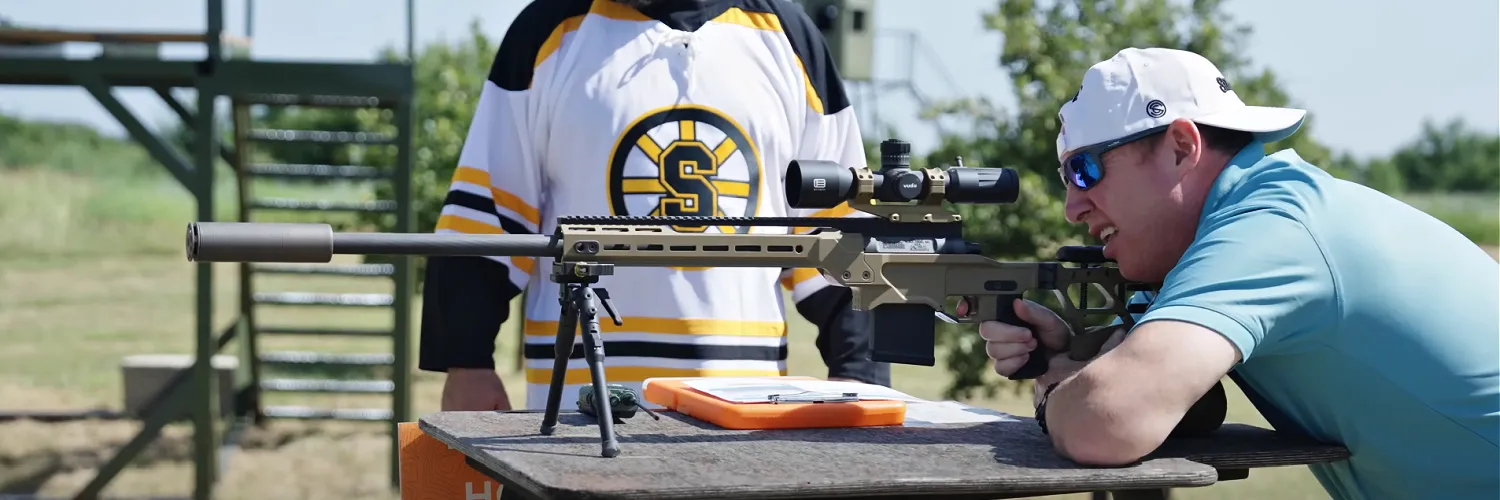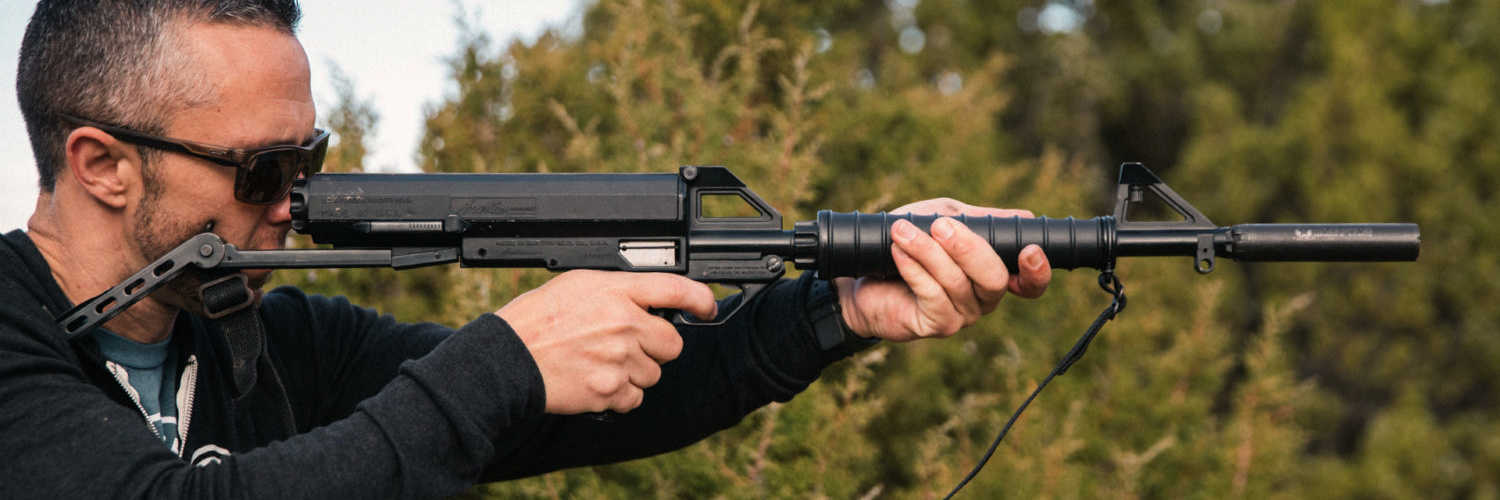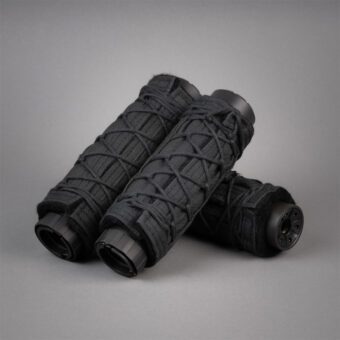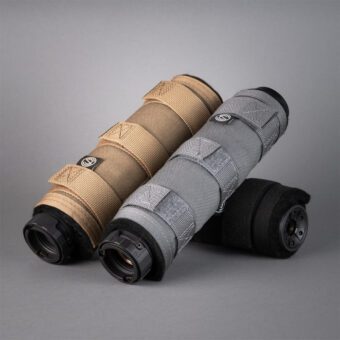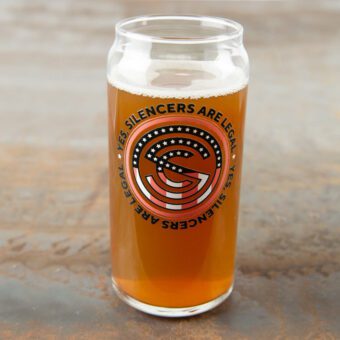Understanding Colorado Suppressor Laws
David Higginbotham
Colorado has something of an identity crisis. The eastern front of the Rockies is dotted with ranches and farm land. The mountains are full of big game, attracting hunters from around the world. But the densely populated urban areas often define this blue state’s politics—and the restrictions placed on firearms and suppressors. So what do you need to know before buying a suppressor in Colorado?
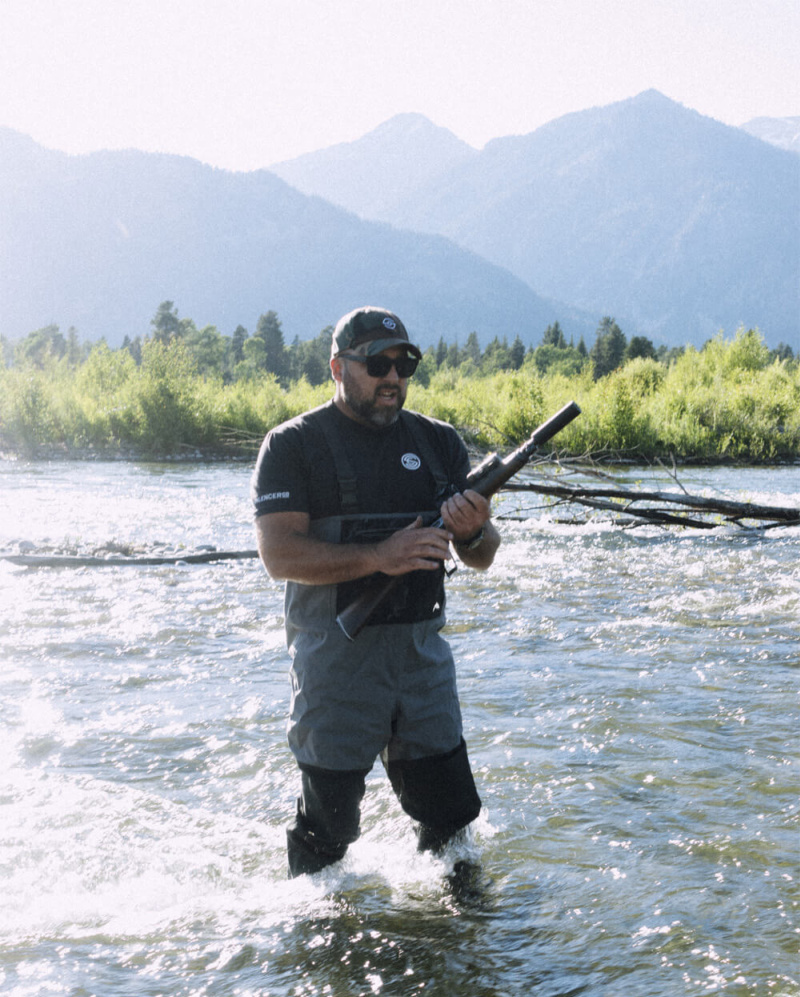
Are Suppressors Legal in Colorado?
Spoiler alert: suppressors are legal in Colorado. If you’re looking for the 10,000-foot view, that’s it. But there are some nuances you should be aware of. And if you ever have any doubt, seek qualified legal advice.
I’m not a lawyer—but I have seen one on TV. No matter how well I source my information, I like to vet any major life decisions that may jeopardize my good standing with good friends at the Bureau of Alcohol, Tobacco, Firearms and Explosives with a solid conversation with legal counsel.
Yes, Silencers Are Legal ®
In 42 states of our indivisible republic, silencer ownership and use are perfectly legal, assuming you meet some basic qualifications.
And Colorado is one of those glorious 42. If you meet the standard requirements of the Federal Form 4 stipulations, Colorado will recognize your right to own a suppressor.
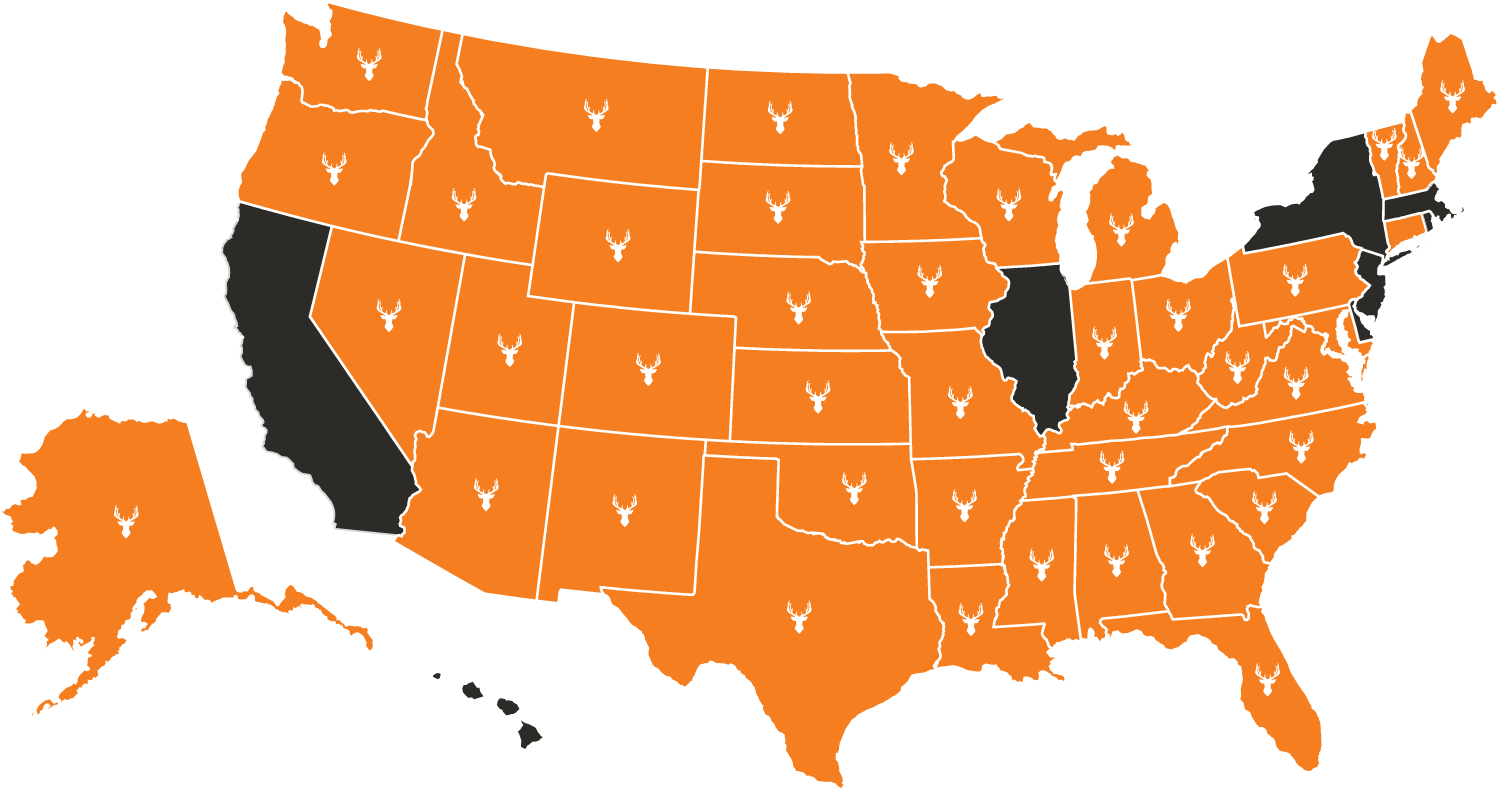
Using a Suppressor in Colorado
Colorado doesn’t impose any extra stipulations regarding suppressor use. From basic range time to hunting elk, there are no ADDITIONAL restrictions placed on you simply because you’ve added a suppressor to your gun.
This may surprise some who have lived through recent waves of political restrictions. Colorado enacted a ban on magazines capable of holding more than 15 rounds, for example, in a move that infuriated many law-abiding citizens. Magpul, long a Colorado-based company, upped stakes over the restrictions and moved to more welcoming business environs.
Can You Hunt With a Suppressor in Colorado?
Yes, you can hunt game and non-game animals in Colorado with a suppressor.
Every state has a tourist slogan, and Colorado’s is “Come to Life.” I think “Come to Wildlife” might be more apt, as a good chunk of the state’s tourist revenue is built on hunting.
The Centennial State is a fantastic place to hunt. Sheep, elk, mulies—even upland game: many hunters wait their entire lives for the chance to pull a select Colorado tag. And many of them hunt suppressed. From pest control to varmints to trophy moose, silence is golden.
The state protects the right, too, for out-of-state hunters to bring and use their suppressors on their Colorado hunts. They have even relaxed the magazine restrictions for non-residents. If you are traveling to or through Colorado with standard-capacity mags, you’re welcome to do so.
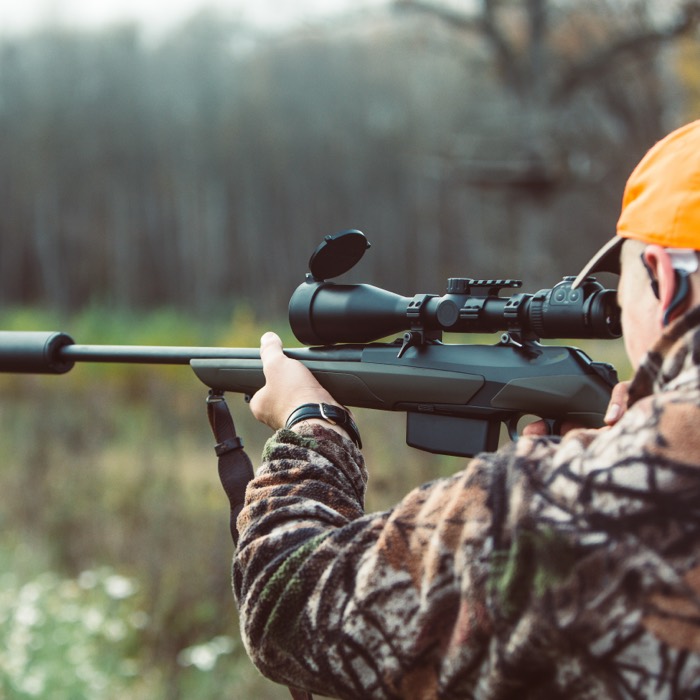
What Are the Regulations?
Eight states don’t recognize citizens’ rights to own silencers. But the others, even Colorado with its mag restrictions and some municipal bans on black rifles, are easy to navigate.
You’ll still need to meet the baseline obligations required by the National Firearms Act (NFA) of 1934. Enforcement of the NFA falls to the ATF. To qualify in the eyes of Uncle Sam, you must:
- Be a legal resident of the United States.
- Be legally eligible to purchase a firearm.
- Reside in one of the 42 states allow suppressor ownership.
- Be at least 18 to buy a suppressor from an individual with a Form 4 to Form 4 transfer.
- Be at least 18 to possess a suppressor as a member of a trust or of a corporation.
- Be at least 21 to buy a silencer from a dealer.
- Pass a BATFE background check.
- Pay the required $200 Transfer Tax.
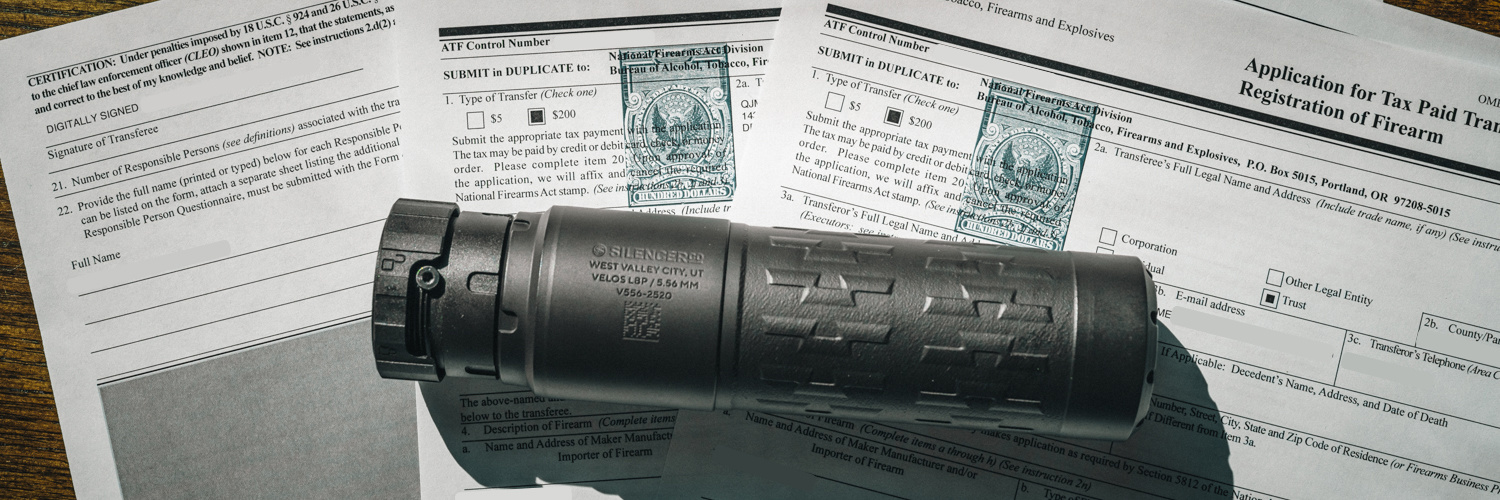
A Deep Dive into Colorado Suppressor Regs
So far, I’ve avoided pointing out the ambiguities. Colorado isn’t really that different from other states. Some parts of its legal code can seem inscrutable, but it’s still important to understand them.
Let’s start with Colo. Rev. Stat. §18-12-102. This statute clearly prohibits silencers. At first glance, it reads like an outright ban, but there’s a key caveat: a “valid permit and license for possession of a silencer” serves as an “affirmative defense.”
Colorado Revised Statute, Section 18-12-102
Colorado law classifies suppressors—referred to legally as “firearm silencers”—as dangerous weapons. As a result, possession is generally prohibited unless certain legal conditions are met.
To date, this statute has been interpreted to mean that individuals must complete the federal ATF approval process, including the tax stamp and registration through the NFA, to own or possess a suppressor in Colorado legally. In other words, if you don’t have your paperwork in order, possession alone could be considered a felony offense under state law.
The statute reads as follows:
18-12-102. Possessing a dangerous or illegal weapon – affirmative defense – definition
(1) As used in this section, the term “dangerous weapon” means a firearm silencer, machine gun, short shotgun, short rifle, or ballistic knife.
(2) As used in this section, the term “illegal weapon” means a blackjack, a gas gun, or metallic knuckles.
(3) A person who knowingly possesses a dangerous weapon commits a class 5 felony. Each subsequent violation of this subsection (3) by the same person shall be a class 4 felony.
(4) A person who knowingly possesses an illegal weapon commits a class 1 misdemeanor.
(5) It shall be an affirmative defense to the charge of possessing a dangerous weapon, or to the charge of possessing an illegal weapon, that the person so accused was a peace officer or member of the armed forces of the United States or Colorado National Guard acting in the lawful discharge of his duties, or that said person has a valid permit and license for possession of such weapon.
Denver Code, Section 38-130(e)
While Colorado’s state law sets the broad framework for suppressors and firearms, local ordinances can add layers of complexity. Denver, in particular, has its own set of rules that hunters and shooters should be aware of.
Denver Code Chapter 38, Article IV, Division 2, Section 38-130 (e) seeks to establish “assault weapons” as centerfire firearms with detachable mags that can hold more than 15 rounds.
Many of us recoil at terms like “assault weapon” and “high capacity magazines,” both of which are scattered throughout the Denver Code.
Rimfires with tubular mags are exempt. Lever action rifles, too, escape scrutiny. There are more solid options for lever actions from Smith, Ruger, Marlin and Henry now than ever, and most makers are threading barrels at the factory, opening new potential for Denver residents—if that’s any consolation.
Sadly, the mag debate in Colorado appears settled, for now. The state-wide ban was enacted in 2013 and upheld by the Colorado Supreme Court in 2020.
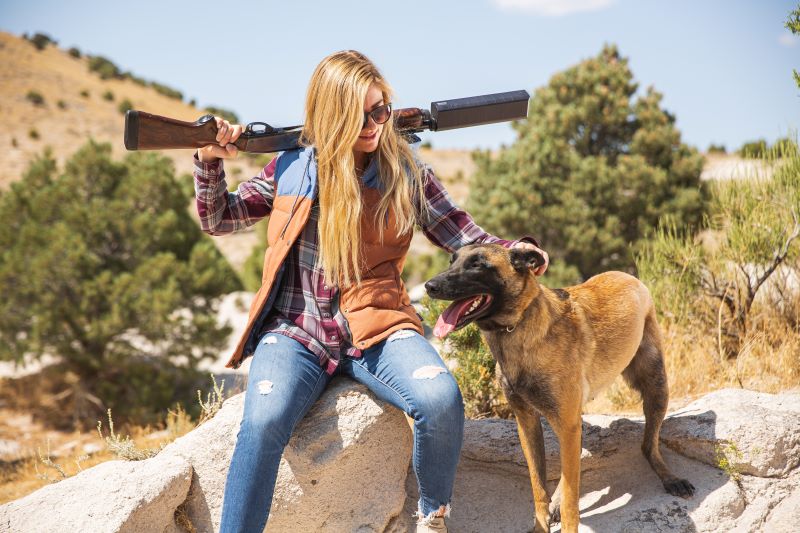
Can You Borrow a Suppressor?
No—but let’s break that down. Colorado, like the other 41 states that recognize our right to silencer ownership, has very strict rules about keeping your suppressor in your possession.
If you are the legal owner of a suppressor, you can allow someone else to shoot it—as long as it remains in your presence. For example, if you’re at the range and your brother wants to send a few rounds downrange, that’s perfectly fine—provided he meets all the legal qualifications for gun ownership.
I wouldn’t suggest lending him your can so he can go hunt mule deer while you’re stuck in your cubicle. That would strain credulity and stretch the definition of “in your presence” beyond reason.
Using Gun Trusts for Shared Ownership
This is where the gun trust comes into play. If multiple people want to legally possess and use a suppressor, you can create a trust (or even use a corporate entity) to serve as the legal owner.
The same rules still apply. Each member of the trust must go through the same background checks and approvals required for individual ownership. But once they’re on the trust, any member can legally possess and transport the suppressor on their own.
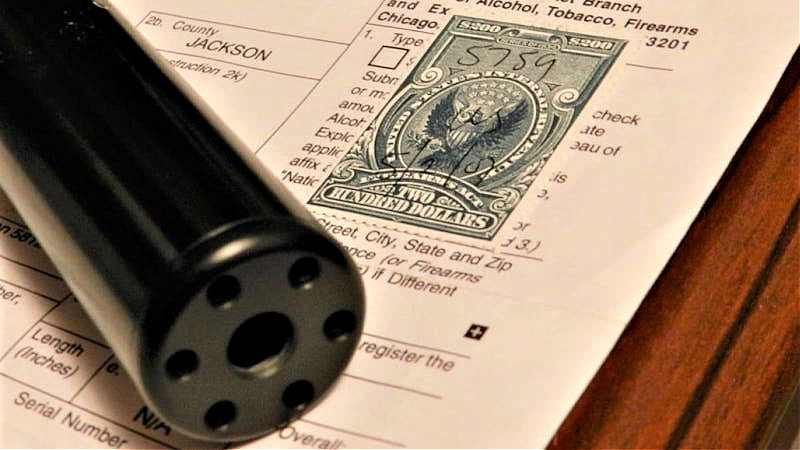
To be clear: every trust member must be at least 18 years old and meet all legal requirements. And don’t try to add anyone who’s legally barred from owning firearms.
Under the Gun Control Act (GCA), these individuals are known as “Prohibited Persons.” That includes anyone who:
- Is under indictment for, or has been convicted of, a crime punishable by more than one year in prison;
- Is a fugitive from justice;
- Is an unlawful user of, or addicted to, any controlled substance (per 21 U.S.C. § 802);
- Has been adjudicated as mentally defective or committed to a mental institution;
- Is in the U.S. unlawfully;
- Was discharged from the Armed Forces under dishonorable conditions;
- Has renounced U.S. citizenship;
- Is subject to a court order restraining them from harassing, stalking, or threatening an intimate partner or that partner’s child; or
Has been convicted of a misdemeanor crime of domestic violence.
The Federal Rules Apply in Colorado
Federal regulations require suppressor owners to keep a copy of the approved Form 4—or other registration documents—with the device. This used to mean carrying around folders of paperwork, which was a pain in the ass.
These days, it’s generally accepted that a digital copy—like a PDF of the approved Form 4 saved on your phone—is sufficient (as long as your phone is working).
For more details, check online. Many Colorado law firms offer consultations and trust creation services. Even the r/COGuns thread on Reddit is relatively concise, tame, and full of helpful advice. Most of the entries are endorsements of local dealers who can help you navigate a purchase.
Assuming you’re not one of those dreadful prohibited persons, there’s nothing stopping you.


